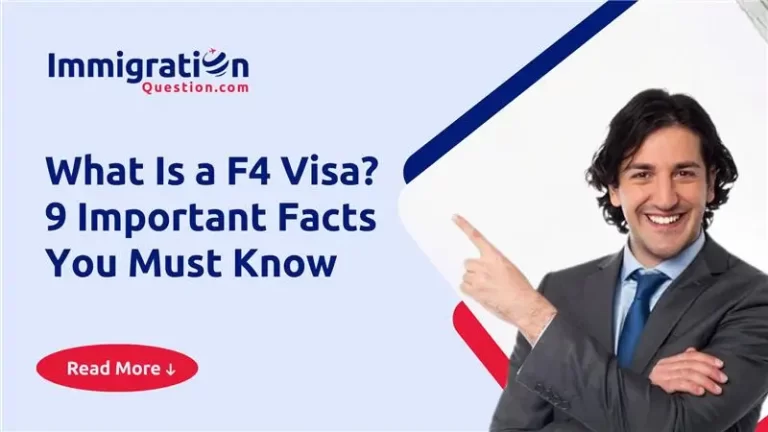Do you want to explore cultural or educational exchange opportunities in the United States? The J Visa can be the path to achieving that goal. This blog addresses your pressing immigration questions and helps you determine if you qualify for a J Visa in 2025. If you need custom legal advice, Immigration Question connects you with an experienced Immigration Question Attorney to help you.
What Is a J Visa?
The J Visa, also known as the Exchange Visitor Visa, is a nonimmigrant visa for individuals approved to participate in U.S. government-designated exchange programs. These programs foster cross-cultural collaboration in areas like education, arts, science, and medicine.
Participants must be sponsored by an institution or agency certified by the U.S. Department of State. These programs are created for mutual benefit, allowing foreign nationals to share and gain experience in a structured environment.
Who Can Apply for a J Visa?
You may qualify for a J-1 visa if you plan to participate in a program focused on:
- Teaching or instructing
- Studying or research
- Consulting or demonstrating special skills
- Graduate medical education or training
- Cultural exchange activities
Approved categories of exchange visitors include:
- Professors or scholars
- Research assistants
- College or university students
- Trainees
- Teachers (e.g., K-12 exchange)
- Specialists
- Camp counselors
- Au pairs
Educational or nonprofit institutions sponsor most J-1 visa holders.
What are the Requirements for a J Visa?
You must meet the following requirements to qualify for a J Visa:
- Be accepted into a U.S. Department of State-designated exchange program
- Receive a DS-2019 Certificate of Eligibility from your sponsor
- Intend to participate in program activities consistent with your visa category
- Maintain your status by adhering to your program’s requirements
J-1 visa holders are admitted for Duration of Status, which means your stay is tied to the length of your program, as stated on your DS-2019 form.
Extensions may be possible only through your program sponsor, not USCIS.
Application Process: Step-by-Step
- Get Sponsorship: Secure a sponsor and obtain the Form DS-2019 (Certificate of Eligibility for Exchange Visitor Status)
- Pay the SEVIS Fee:
Pay the I-901 SEVIS fee online before your visa interview. - Complete the DS-160 Form:
Fill out the DS-160 Online Nonimmigrant Visa Application and print the confirmation page - Schedule a Visa Interview:
Book an appointment with a U.S. embassy or consulate closest to you. - Gather Required Documents:
Bring the following documents to your interview:
- Valid passport
- DS-2019 Form
- DS-160 confirmation
- Passport photo (per U.S. visa standards)
- DS-7002 Form (if applicable to interns/trainees)
- Proof of ties to your home country (e.g., job offer, property, family)
6. Pay Required Fees:
Applicants must pay a non-refundable application fee. Some applicants must also pay a visa issuance fee.
Can J-1 Visa Holders Work?
Some J-1 participants are permitted to work but only under the conditions approved by their exchange program. Unauthorized employment can jeopardize your visa status. Clarify with your program sponsor or speak with an Immigration Question Lawyer before engaging in any form of employment.
What is the Duration of Stay for J Visa?
Your J-1 visa duration depends on the length of your program. After completion, many J-1 visa holders are subject to the two-year home residency requirement. You must return to your home country for two years before re-entering the U.S. Waivers may apply in exceptional situations.
J-2 Visas for Family Members
Spouses and children under 21 of J-1 visa holders may qualify for J-2 visas. J-2 dependents may also apply for work authorization using Form I-765, though their income cannot be used to support the primary J-1 visa holder.
Ask Your Immigration Question Today
Are you still not sure if you qualify? Do you need professional help with your J visa application? Immigration Question connects you with a verified Immigration Question Attorney experienced in the J Visa application process and can allay your fears.
Visit Immigration Question today to get started.
Frequently Asked Questions About the J Visa
-
Who qualifies for a J Visa in 2025?
Eligible individuals include students, scholars, teachers, researchers, specialists, au pairs, camp counselors, and trainees participating in a Department of State-approved exchange program.
-
Can J-1 visa holders work in the U.S.?
They can work only if the sponsor authorizes the employment and it is part of the exchange program. Unauthorized work can violate your visa terms.
-
How long can I stay in the U.S. on a J Visa?
Your stay depends on the duration of your approved program. Due to the home residency requirement, many J-1 visa holders must return to their home country for two years after their program ends.
-
Can my spouse and children join me on a J Visa?
Family members can apply for J-2 visas. J-2 visas allow them to study and work in the U.S. if they receive employment authorization. However, their income cannot be used to support the J-1 visa holder.
-
How can I get legal help for my J Visa application?
Platforms like Immigration Question can connect you with an experienced Immigration Question Lawyer who can guide you through the process.
-
Can I extend my J-1 visa stay?
You can only extend through your program sponsor. The U.S. Department of State must approve the extension. You do not need to file a separate extension request with USCIS.











